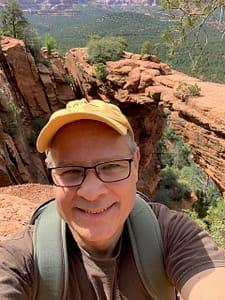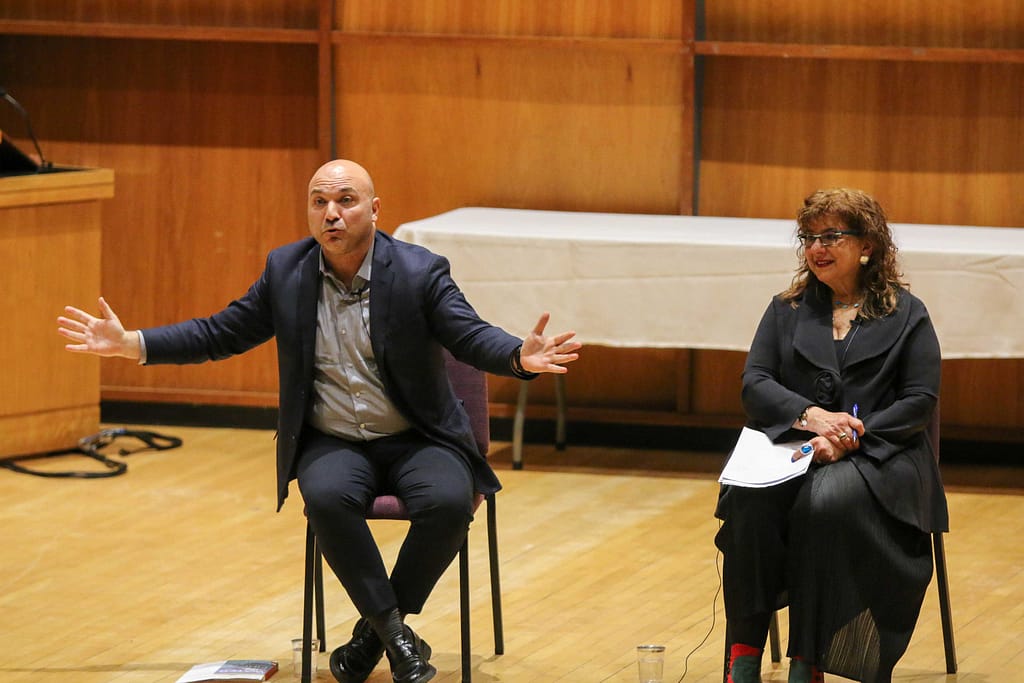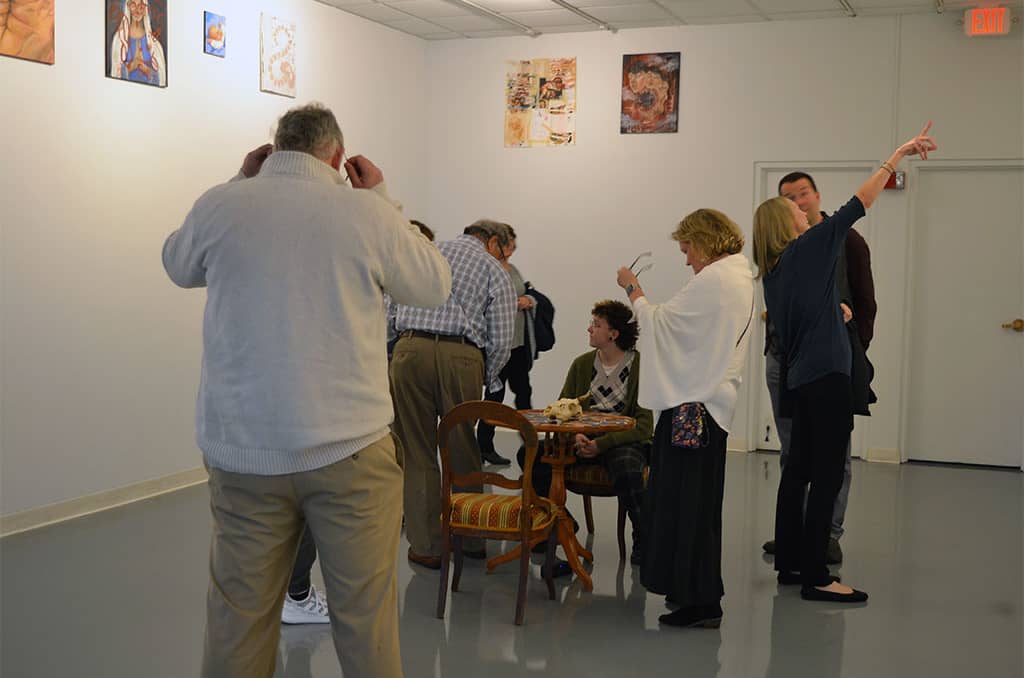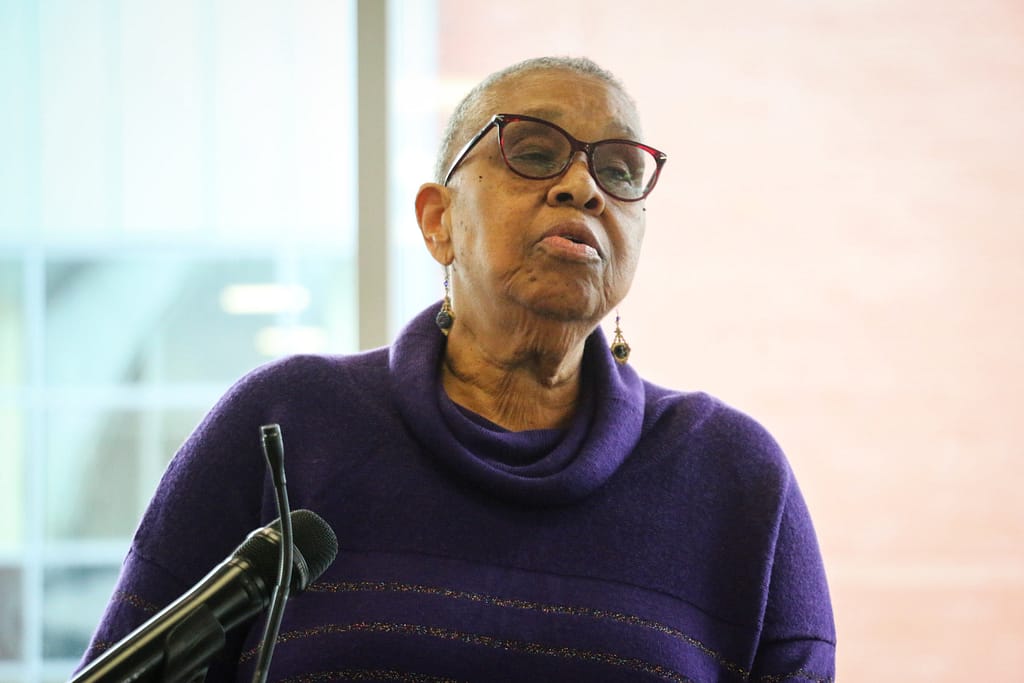St. Mike’s alumnus leads a town’s COVID-19 response
Lt. Col. Ret. Louis H. Botta ’75 has dedicated his life to public service, a commitment begun in college that he continues in retirement in New London, NH
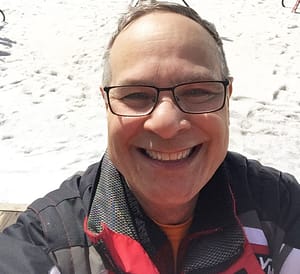
Lou Botta ’75
When Lou Botta ’75 retired to New London, New Hampshire, there was never a question of whether he would weave himself into the fabric of the town, located in the Dartmouth-Lake Sunapee Region of the state. When COVID-19 hit the United States publicly in March, Botta’s volunteer role as New London’s Emergency Management Director morphed in the equivalent of a full-time job as the town worked to protect its citizens from the virus. A career spent in public service – and a willingness to share his time and expertise – has made him an indispensable leader in New London’s response to the pandemic.
Botta agreed to share his experience with Saint Michael’s, a community he considers to be “a part of his extended family.” He enrolled at the College nearly 50 years ago, shortly after arriving in the United States as an exile from Cuba. His family’s experience there had left him hardened and dogmatic in his view of the world, but involvement in campus life compelled Botta to reframe his worldview and to see the inherent good in people. While a student at Saint Michael’s, Botta decided to devote his life to public service — first in the United States Air Force and then with the Federal Emergency Management Agency (FEMA) — a commitment he continues to fulfill in retirement.
- Tell us about your role as New London’s Emergency Management Director. Has your role changed since the beginning of the pandemic?
The New London Emergency Management Director prepares plans and procedures for responding to natural disasters and other emergencies in their jurisdiction. They also help lead the response during and after emergencies, often in coordination with public safety officials, elected officials, nonprofit organizations, and government agencies.
Since the beginning of the pandemic, responding to the town’s needs has been preeminent in the role – particularly in ensuring that the town’s continuity of operations remains viable during the pandemic. In addition, there has been nonstop procurement of Personal Protective Equipment for first responders and health and educational organizations, coordination with the State Emergency Operations Center and Public Health, maintaining liaison with the Multi Agency Emergency Health Network, and coordinating with the Chamber of Commerce, businesses and private nonprofit organizations to ensure they are able to obtain protective equipment and are aware of the latest health guidance.
- Despite the demands of the role, this is a volunteer position. What motivates you to do this work during your retirement years?
When I arrived in the United States as a political exile, I decided that my life would be dedicated to my new country. At Saint Michael’s, I was very involved in ROTC, Student Government and the LEAP Program. Upon graduation, I began a 22-year career as an Air Force Officer, and after that I began a second career in Civil Service, appointed as one of the first 15 members of the FEMA Federal Coordinating Officers, where I served for and represented four presidents while managing federal disasters. After my second retirement, we moved back to New England, and I have been involved in our civic life. For me, being involved in the community is a part of my life. I will say that the example of community and activism set by the Edmundite Fathers was, has been, and is a key part of my ethical life.
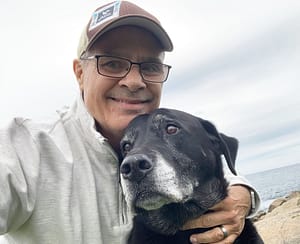
Lou Botta with his dog
- What impact has your Saint Michael’s education had on where you are today? Were there any particular experiences, classes, professors, or extracurricular activities that propelled you to a career of public service?
When I arrived at St. Michael’s I was a very hardened young man. My family and I had recently lived through a revolution, everything we had was confiscated by the government, our family was split up for almost three years, and our values reflected that pain of dispossession. My parents, both scientists and professionals, began their life in the US working in factories. And yet, they provided us with an education. I came to live in the College believing in a retributive God and a retributive society.
My experience at St. Michael’s changed my life. The LEAP program was an indelible part of opening my eyes to the goodness of humanity, the benevolence of a Deity, and our need to do our part to make the world better. Fr. Ray Doherty ’51 was also an amazing influence in my life, helping me navigate my chosen career in the military with our roles as peace makers. I had some amazing classmates who took the time to talk to me and share experiences. I still keep in touch with many of them. Our American Studies Seminars, my passion in the College, cemented my views on constitutional government and our role as a democracy, which I well used in my ten years in politico military affairs while in uniform. The lessons of the late Dr. Norbert Kuntz and Dr. Ed Pfeiffer ’43 are still with me. Early in my career, every time I would visit my parents in Connecticut, I would make the trip to Vermont and have long talks with Dr. Kuntz. I still mourn his passing. Father Paul Couture, SSE ‘52 had a major influence in my personal epistemology and forced me to challenge my faith and my values.
- To provide context to our students and young alumni for how someone gains the knowledge and expertise to become an Emergency Management Director, please describe your career and how it prepared you for your current role.
Lou Botta’s work in emergency management has taken him far and wide throughout the U.S.
A career in emergency management is similar to being in the military in several respects: You’re on duty 24 hours, seven days, 365 days a year. When a disaster strikes, you’re on. Secondly, the training never stops. Laws, procedures, policies, are always evolving. And lastly, you can’t be afraid of making a mistake on dealing with a disaster or there will be paralysis.
The science of Emergency Management is exciting and dynamic. Unlike when we were in the beginning stages, that we were seeking a True North, there are countless training opportunities, many of them available at no cost, through the Emergency Management Institute and other state-run organizations.
Editor’s Note: Saint Michael’s recently created the COVID Action Network (SMC CAN!) where students are learning to address pandemic-related challenges alongside the faculty and staff collaborators who created the innovative new program.
